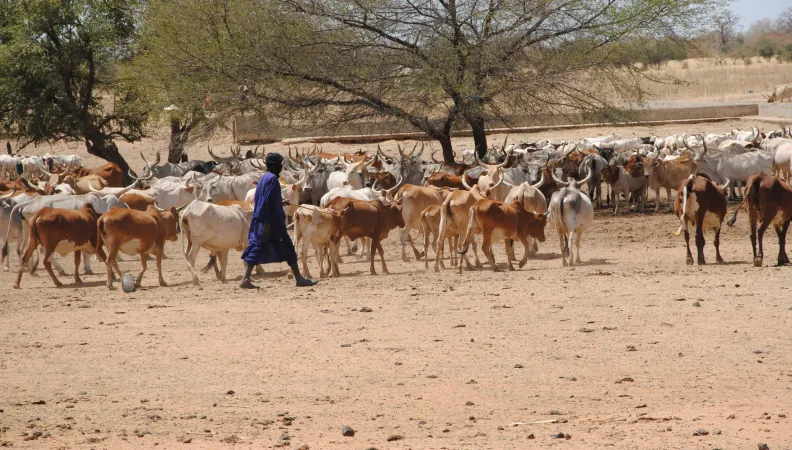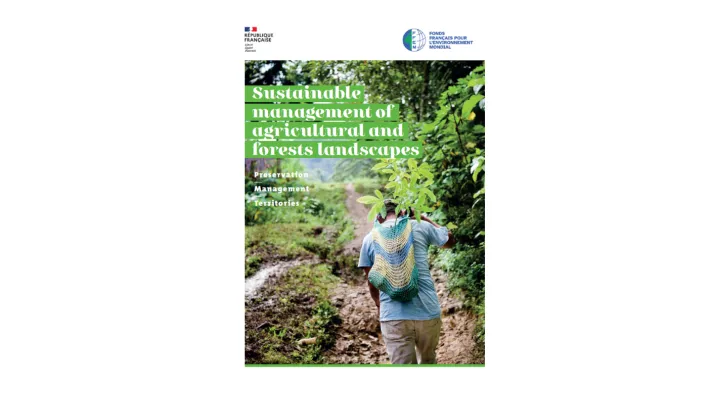Share the page
Combatting desertification : FFEM’s actions through concrete examples
Published on

On the occasion of the Desertification COP taking place from December 2 to 13, let’s revisit the FFEM’s efforts to combat this threat to ecosystems and communities in arid regions. The French Facility for Global Environment (FFEM) mobilizes innovative solutions through collaborative projects to preserve soils, support populations, and restore ecosystems.
-
Promoting Sustainable Land Management
In Mongolia, FFEM supports the development of a sustainable cashmere supply chain in partnership with the NGO AVSF. This initiative improves product quality while protecting fragile pastures from overgrazing. Additionally, a pasture monitoring tool, supported by FASEP, enables precise management of these valuable resources through real-time data.
-
Enhancing Agricultural Resilience Through Modeling
Under the SUPMED project, FFEM helps improve agricultural systems in Lebanon and Egypt using modeling tools. By analyzing the impacts of climate change, the project provides concrete solutions to optimize soil, water, and crop management. These innovative approaches strengthen the resilience of farms against increasing droughts.

-
Promoting Agroecology for Resilient Drylands
Through the AVACLIM project, FFEM and the NGO CARI, co-funded by the GEF and FAO, demonstrate that agroecology is a sustainable solution for drylands. Implemented across seven countries, this project has stabilized soils, increased agricultural yields, and enhanced community resilience to climate change. The results show that these practices are both locally adaptable and economically viable.
-
Restoring Degraded Lands for Biodiversity and Communitie
In Senegal’s Ferlo region, FFEM, in partnership with AVSF and AFD, is working to restore degraded agro-pastoral lands. By combining reforestation, pasture regeneration, and farmer training, this project has slowed the spread of desert soils while boosting agricultural and pastoral productivity.
-
Supporting Regional Initiatives for Sustainable Land Management
Through the Regional Sustainable Land Management Program (PRGDT), FFEM supports nine Sub-Saharan African countries in integrating land management into their national policies. This program strengthens land governance, develops innovative soil restoration solutions, and facilitates the sharing of best practices across the region.
Conclusion
An Integrated and Global Approach
By combining innovation, partnerships, and community involvement, FFEM demonstrates that it is possible to effectively combat desertification while generating co-benefits for climate, biodiversity, and populations. These projects, offering concrete and replicable solutions, pave the way for similar initiatives in the world’s most vulnerable regions.
Find a summary of our action on sustainable management of agricultural and forest territories

